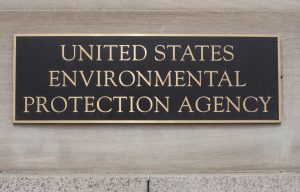Many policyholders assume that if an insurer pays to defend a claim against them, the policyholder will never be asked to pay those costs back. And most often they’re right. But sometimes the insurer may demand that the policyholder pay back some or all of the defense costs. Such insurers treat the contractual duty to defend or to indemnify the insured for defense costs as little more than a lending facility.
 Most of the time, such insurer demands are unjustified. But companies should understand when and under what circumstances insurers might seek reimbursement or recoupment of defense costs so they can avoid agreeing to do so unnecessarily or at least plan in advance financially.
Most of the time, such insurer demands are unjustified. But companies should understand when and under what circumstances insurers might seek reimbursement or recoupment of defense costs so they can avoid agreeing to do so unnecessarily or at least plan in advance financially.
 Policyholder Pulse
Policyholder Pulse



 The particular information request at issue in Ash Grove Cement is known as a “104(e) letter,” which is issued by the EPA under section 104(e) of the Comprehensive Environmental Response, Compensation and Liability Act of 1980 (CERCLA). As companies that have owned or operated a contaminated site know from experience, a 104(e) letter or a similar request under state environmental law typically is the first step in a regulatory enforcement process under which they face strict and retroactive liability for the costs of investigating and cleaning up the site. The ruling in Ash Grove Cement means that defense cost coverage begins at this critical juncture and continues until site investigation and cleanup is completed.
The particular information request at issue in Ash Grove Cement is known as a “104(e) letter,” which is issued by the EPA under section 104(e) of the Comprehensive Environmental Response, Compensation and Liability Act of 1980 (CERCLA). As companies that have owned or operated a contaminated site know from experience, a 104(e) letter or a similar request under state environmental law typically is the first step in a regulatory enforcement process under which they face strict and retroactive liability for the costs of investigating and cleaning up the site. The ruling in Ash Grove Cement means that defense cost coverage begins at this critical juncture and continues until site investigation and cleanup is completed. That was the message a federal magistrate judge in the Eastern District of New York delivered when she ruled that Certain Underwriters at Lloyd’s had waived attorney-client privilege by communicating with their counsel through a London broker.
That was the message a federal magistrate judge in the Eastern District of New York delivered when she ruled that Certain Underwriters at Lloyd’s had waived attorney-client privilege by communicating with their counsel through a London broker. easingly bringing nuisance claims based on bright lights, loud noises, traffic, dust, odors, wastewater and other effects of these activities. A question facing the oil and gas industry is whether the costs of such nuisance claims are covered by insurance.
easingly bringing nuisance claims based on bright lights, loud noises, traffic, dust, odors, wastewater and other effects of these activities. A question facing the oil and gas industry is whether the costs of such nuisance claims are covered by insurance.